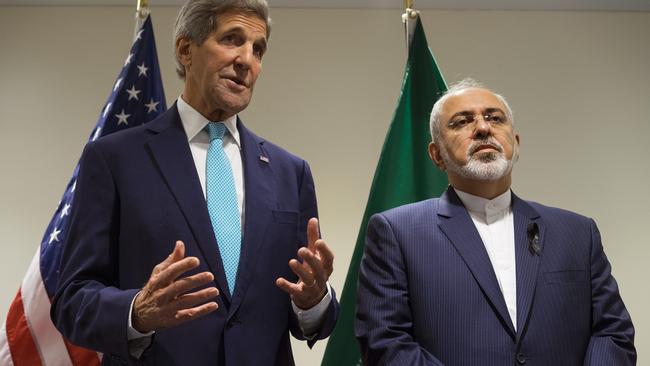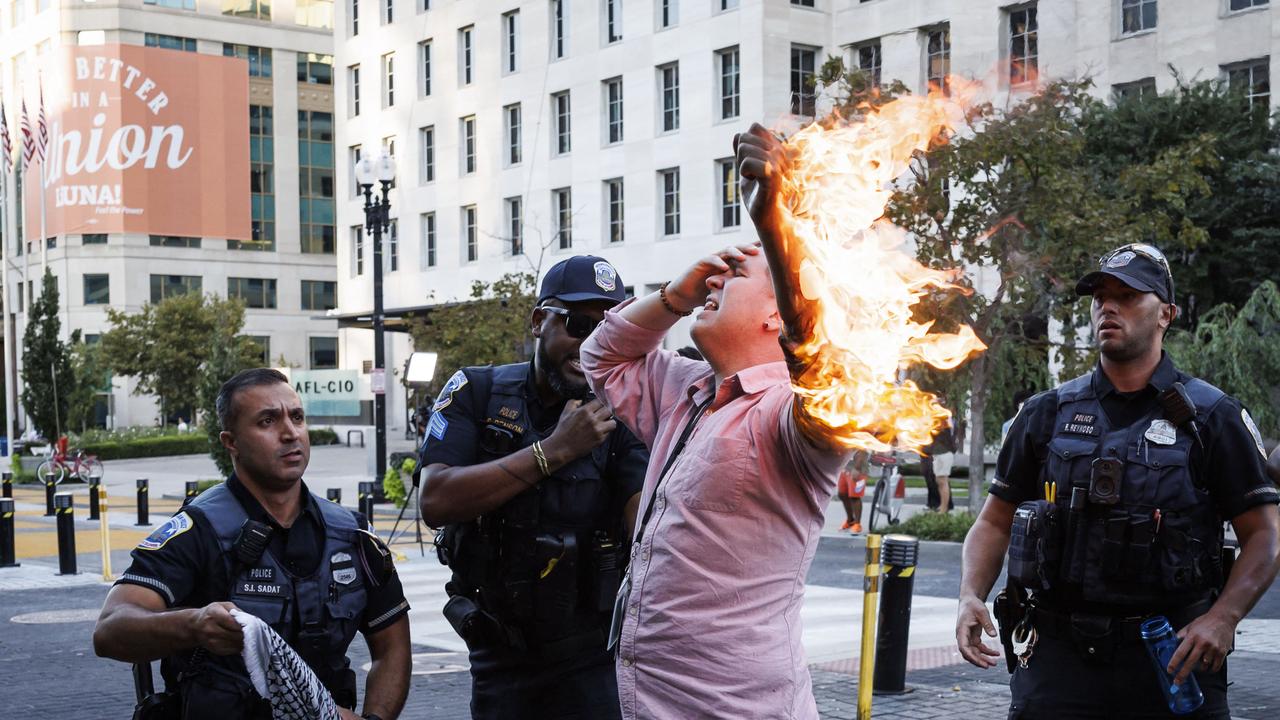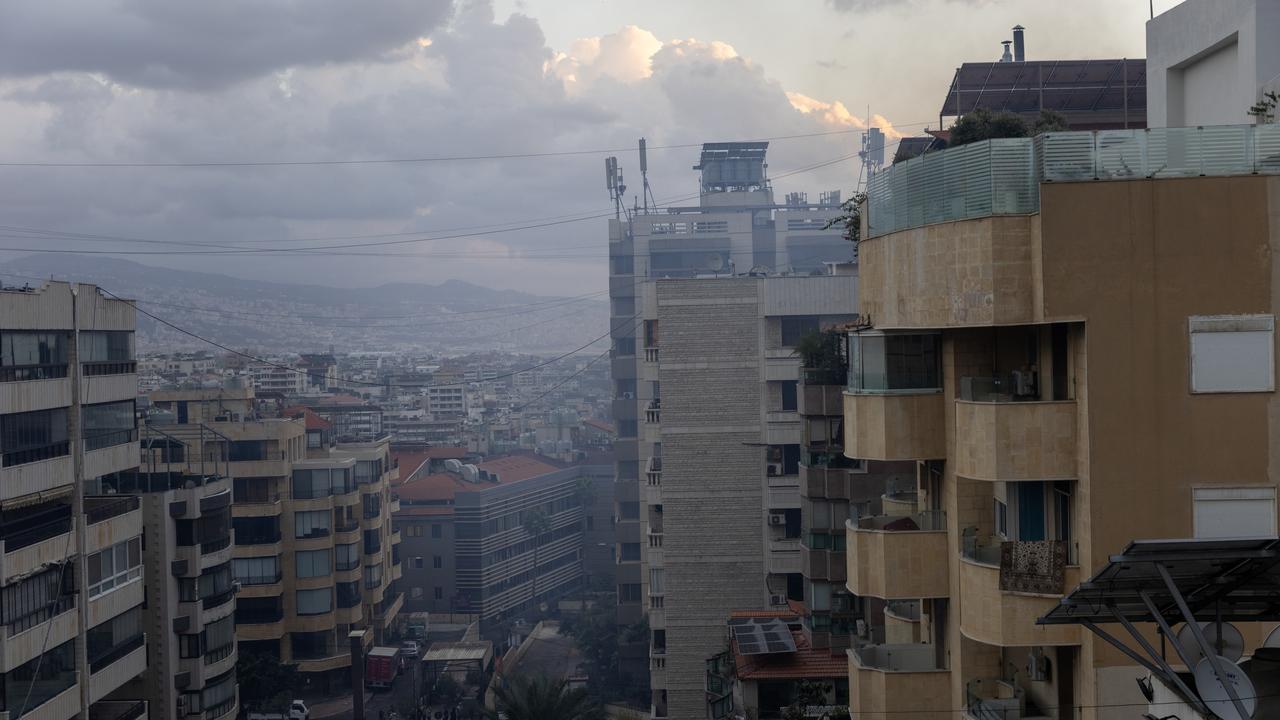US is failing in war against Islamic State in Syria: Iran
Iran believes the US-led air campaign against Islamic State has failed.

Iran believes the US-led air campaign against Islamic State has failed, leaving the world with a choice of backing the Syrian regime of Bashir al-Assad or seeing a “terrorist state’’ installed in Damascus.
As reports emerged that Russian fighter planes had bombed US-backed rebels in Syria, and not, as Moscow claimed, Islamic State fighters, Iran’s Foreign Minister, Mohammad Javad Zarif, said the West must get over its “obsession” with Assad, which he said had become an obstacle to peace.
In a wide-ranging interview with The Weekend Australian, Mr Zarif also praised Australia’s policy on Syria, describing it as nuanced, and “more reasonable’’ than that of its allies.
He revealed Tehran had been given advance notice of Moscow’s airstrikes, a courtesy only barely extended to Washington, which learnt of the attacks an hour before they occurred.
Speaking from New York, where he has been attending the UN General Assembly, Mr Zarif said the world had no choice but to back the current Syrian government, which he said was the only “viable force’’ fighting Islamic State.
He warned that the collapse of the Syrian government would be a catastrophe for the region and for the wider world, resulting in the creation of a fully fledged terrorist state in Damascus.
“(That will have) far wider implications because of the historical significance of Damascus for an Islamic caliphate,’’ Mr Zarif said. “It will have far wider regional and global implications than anybody could imagine.’’
Mr Zarif was blunt in his assessment of the Coalition’s efforts to roll back Islamic State, saying the US-led campaign had “failed’’.
“I think there is one campaign, the other one is a show,’’ Mr Zarif said, referring to the parallel campaigns now being waged by Russia and the US against Islamic State, also known as ISIS or ISIL.
“In all honesty, and with all respect to everybody, the other one has failed,” he said.
“It’s been going on, it failed in Iraq, anywhere it tried to replace the Iraqi popular resistance forces who were fighting Islamic State, it failed. It led to even further advances by ISIS whether it was in Tikrit or in Ramadi.’’
Mr Zarif accused Washington of lacking the “political will’’ for the fight and for being beholden to regional allies such as Saudi Arabia, which yearned for the downfall of Assad regime more than it yearned for the defeat of Islamic State. “The Russians, or us, we don’t have that constraining factor so it’s a totally different ball game now,” he said.
The Times reported yesterday that Iran was believed to have sent hundreds of fresh troops to Syria to join a ground offensive against anti-Assad rebels, while Saudi Arabia has said it is ready to step up support for the rebel forces if Russia continued its raids.
The moves by Shia Iran and Sunni Saudi Arabia to bolster their battlefield allies underlined how Russia’s intervention has deepened the complexity of a conflict that has drawn in proxies from around the region. Iraq said it would welcome Russian airstrikes against Islamic State positions in its territory.
Russian fighter aircraft struck targets near the Syrian cities of Homs and Hama on Wednesday, raising the stakes in what has become the world’s top security crisis.
Russian President Vladimir Putin and French counterpart Francois Hollande were gearing up for talks on the Syrian conflict last night as tensions rose after Moscow unleashed a fresh wave of bombing over Syrian soil late on Thursday.
Russia says its airstrikes are against Islamic State and have so far hit five targets belonging to the jihadists. Washington has disputed this and argues they are aimed at supporting Assad.
The Pentagon held what it said were “cordial and professional” talks with Russian officials yesterday in a bid to avoid mishaps between the two military powers in the region.
With Coalition aircraft patrolling the skies above Syria and Iraq, there are now serious concerns the Russian air campaign, which is being conducted independently of the US-led effort, could result in inadvertent clashes between the two forces.
The US was quick to say Russia’s actions had not disrupted the tempo of its own air campaign, which continued unimpeded.
Moscow said its fighter planes had trageted ISIS-held positions, a claim disputed by Washington, which said the attacks appeared to be directed at political opponents of Assad.
Mr Zarif said he did not know whether Tehran had provided targeting advice to Moscow. Nor would he reveal how much notice Iran had been given, saying only that the two countries had been in consultation “for some time’’.
“They did tell us in advance that they were taking action,’’ he said.
Mr Zarif rejected speculation Moscow’s sudden involvement had been driven by concerns the Assad regime was close to collapse. “There may have been times, thee years ago, four years ago, when the government was taken by surprise because of the amount of support and assistance, logistical and financial that went to these various terrorist organisations from abroad.
“Now the government has a self-confidence to be able to deal with this.’’
His remarks came at the end of a week-long UN leader’s meeting in New York that was dominated by talk of the Syrian crisis and the need for a political solution to the war, now entering its fifth year.
On Monday, US President Barack Obama and Mr Putin jousted over the cause of the crisis. Mr Obama was insistent that Assad could not play any long-term role in a future Syrian government due to the scale of the atrocities committed by his regime against its own people.
In Washington on Thursday, Australian Justice Minister Michael Keenan questioned Russia’s motives in entering the military conflict.
“We want the broadest possible coalition to destroy ISIL,” he said. “If Russia were going to participate in that, in a constructive way, then that would be a good thing.
“The problem is, their motives are just not trustworthy, and the strikes that we saw over the past 24 hours have not been targeted against ISIL positions.”
When discussing the initial cause of the uprising 4 ½ years ago, Mr Zarif acknowledged there had been “excesses’’ and “mistakes … But the problem in Syria was that some people wanted to project their geo-political game into Syria using the Syrian people as their proxies,’’ he said.
“That has led to this disaster in our region.’’
Mr Zarif said the “obsession’’ with the role of Assad had since proved to be an obstacle to peace.
“People have been bogged down, obsessed with an individual for the past four years, and that has prevented a political solution in Syria because they wanted to impose a restriction from outside,’’ Mr Zarif said.
“Nobody cared what the people of Syria wanted.”
Mr Zarif said he was encouraged by a recent shift in position by some Western countries, including Australia, which had dropped their demands that Assad go before peace talks could begin.
Foreign Minister Julie Bishop has said “all transition options’’ should be on the table and called for Iran to be given a seat at the negotiating table when peace talks resume.
“We always felt that Australia had a more nuanced policy towards Syria and a much more reasonable policy,’’ Mr Zarif said.
“We would welcome any more realism in the policies of Western countries, including Australia.’’





